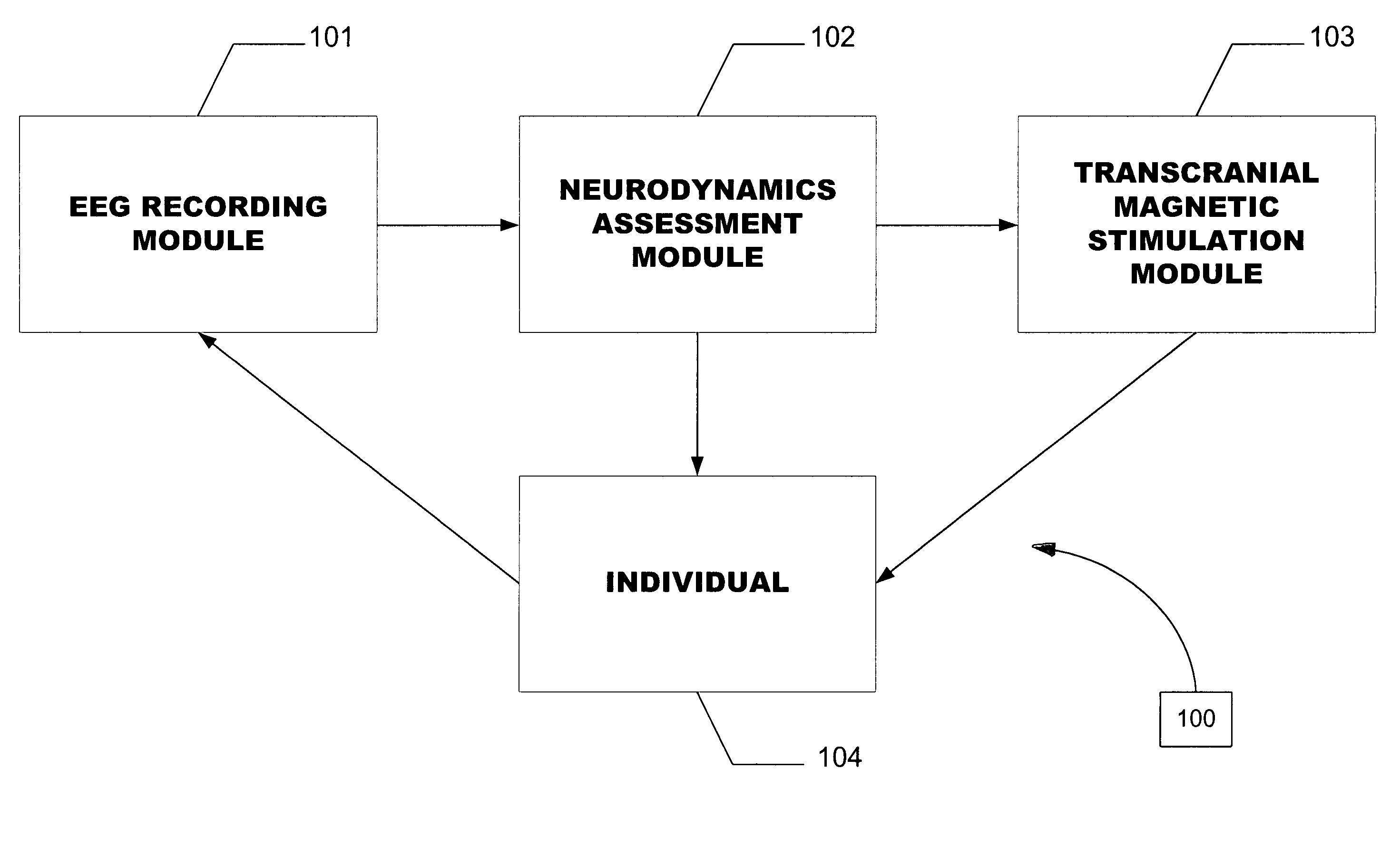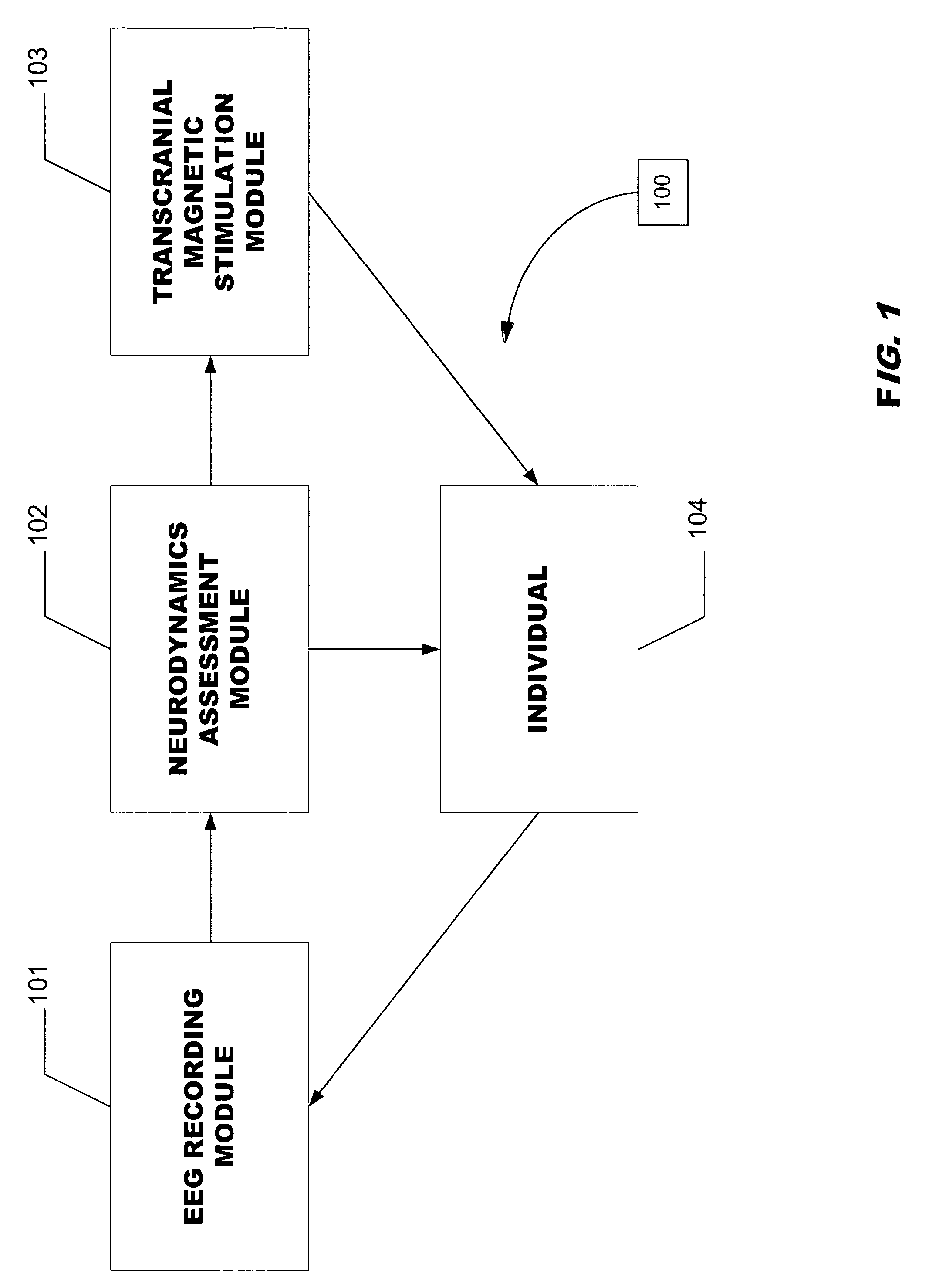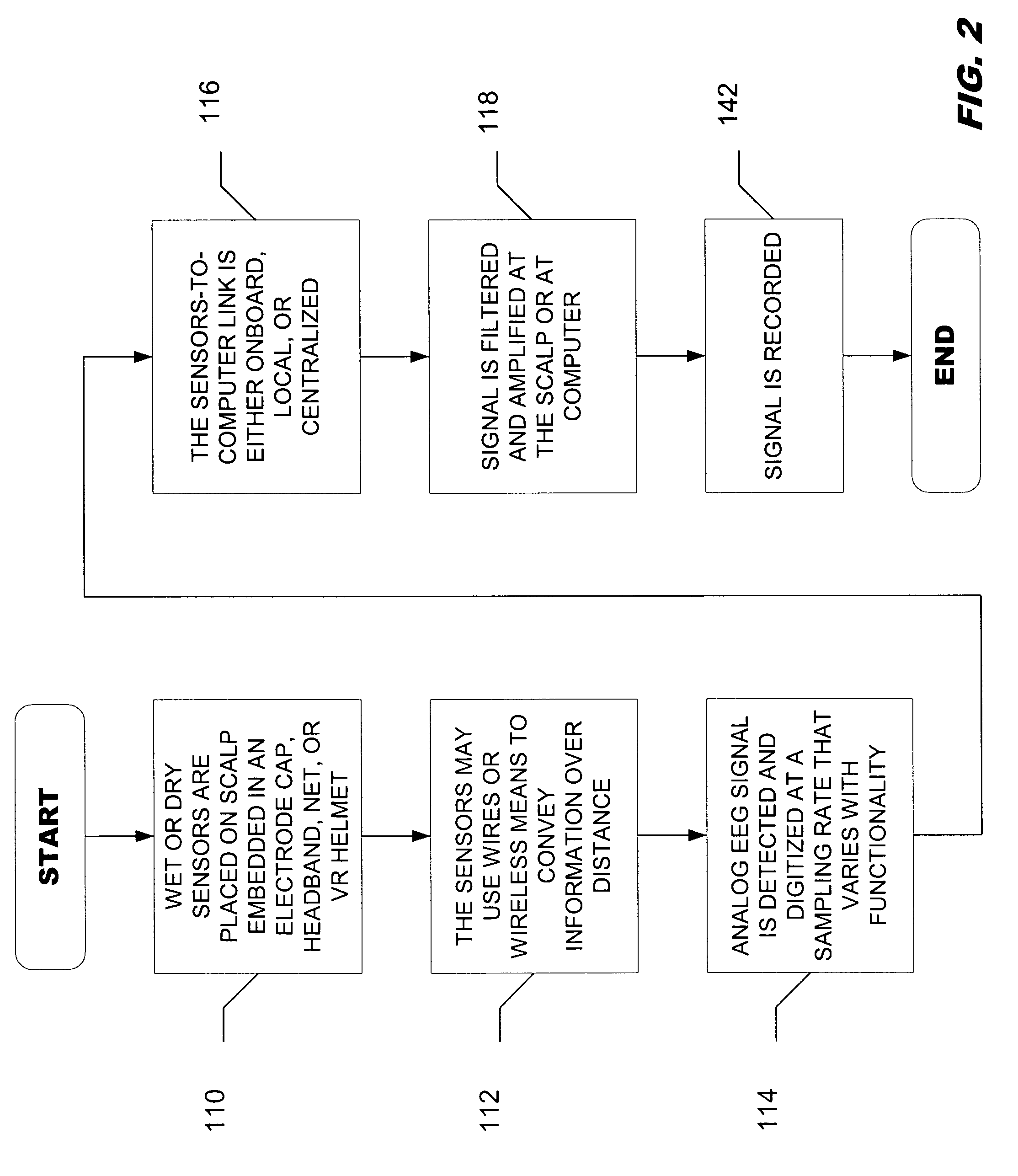Method and system for a real time adaptive system for effecting changes in cognitive-emotive profiles
a real-time adaptive and cognitive-emotive technology, applied in the field of system and methods for adaptive intervention to effect changes in the cognitive-emotive profile, can solve the problems of lack of rapid bi-directional control, current technology cannot work by controlling the level of external therapy, and affect the function of cognitive-emotive circuits, etc., to achieve the effect of reducing/elimination of symptoms of illness and improving memory functions
- Summary
- Abstract
- Description
- Claims
- Application Information
AI Technical Summary
Benefits of technology
Problems solved by technology
Method used
Image
Examples
Embodiment Construction
[0015]The present invention comprises a means and method for inducing a temporary physiological state-of-mind to effect persistent changes to the cognitive-emotive profile of an individual. Capable of rapidly recognizing the functional significance of the mental and brain function, the invention represents a unique approach to neurofeedback and “mental-state” therapy. The invention makes possible sensitive management of types and levels of therapeutic and non-therapeutic interventions. The sense- and mental state-awareness responses, integrated into a two-way (i.e., bi-directional) feedback system using a dynamic interface with intelligently controlled thresholds, comprise a novel adaptive NeuroIntervention System™ (NIS). The invention takes into account details of multi-variate and nonlinear dynamics and database templates to more accurately compute the user's “state-of-mind.” It then utilizes this “state-of-mind” to drive therapeutic and non-therapeutic stimulus intervention. By w...
PUM
 Login to View More
Login to View More Abstract
Description
Claims
Application Information
 Login to View More
Login to View More - R&D
- Intellectual Property
- Life Sciences
- Materials
- Tech Scout
- Unparalleled Data Quality
- Higher Quality Content
- 60% Fewer Hallucinations
Browse by: Latest US Patents, China's latest patents, Technical Efficacy Thesaurus, Application Domain, Technology Topic, Popular Technical Reports.
© 2025 PatSnap. All rights reserved.Legal|Privacy policy|Modern Slavery Act Transparency Statement|Sitemap|About US| Contact US: help@patsnap.com



